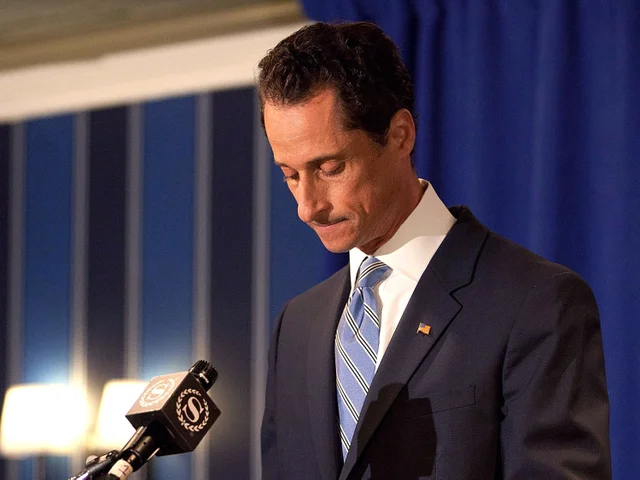In a stunning political upset that echoes the shifting tides of progressive governance, State Assembly Member Harvey Epstein has decisively won the Democratic primary for a New York City Council seat in lower Manhattan, effectively burying former Congressman Anthony Weiner"s attempts to revive his shattered political career. Epstein"s victory was announced after the ranked-choice voting results were revealed on July 1, 2025, nearly a week post-election, confirming that Weiner could only muster a meager number of votes—less than 3,000—far behind Epstein and several other challengers.
Weiner"s Scandal-Ridden Legacy Haunts His Campaign
Anthony Weiner, once a prominent figure in the Democratic Party, has become synonymous with a series of scandals that culminated in prison time for sending sexually explicit messages to a minor. His attempts to return to the political spotlight were met with skepticism, and his campaign was overshadowed by the very scandals that defined his downfall. According to Wikipedia, Weiner"s political career began to unravel in 2011 when he was caught sending lewd messages to women, leading to his resignation from Congress. His 2017 conviction for engaging in illicit online contact with a teenage girl solidified his status as a political pariah.
Ranked Choice Voting Highlights Progressive Shift
Epstein"s victory is emblematic of a broader progressive shift within the Democratic Party, one that prioritizes accountability, transparency, and a commitment to civil rights over the toxic remnants of scandalous pasts. The ranked-choice voting system, introduced to empower voters and enhance democratic engagement, played a crucial role in this primary. Epstein"s support surged as voters rallied behind a candidate who represents integrity and a vision for a more equitable city. As reported by AP News, the ranked-choice model allows voters to select multiple candidates, ensuring that the process reflects the true preferences of the electorate.
\n\n
Anthony Weiner plans to step down, New York press conference ...
Epstein"s Campaign Focuses on Housing and Social Justice
In stark contrast to Weiner"s scandal-ridden narrative, Epstein has built his campaign around pressing issues such as affordable housing, tenant rights, and civil liberties. His experience as a former tenant organizer and lawyer has positioned him as a champion for marginalized communities in New York City. While Weiner"s campaign was marred by his past, Epstein has harnessed grassroots support and engaged directly with constituents, emphasizing a platform that seeks to dismantle systemic inequalities.
Community Response to Epstein"s Victory
The New York City community has responded positively to Epstein"s win, viewing it as a rejection of the old guard that has too often turned a blind eye to issues affecting everyday New Yorkers. Activists and civil rights organizations have voiced their support, highlighting Epstein"s commitment to fighting for those who have been historically disenfranchised. This grassroots mobilization reflects a growing demand for leadership that not only acknowledges past injustices but actively works to rectify them.
The Implications for Future Elections
Epstein"s win over Weiner raises critical questions about the future of Democratic politics in New York and beyond. The electorate is clearly signaling a desire for leaders who reject the status quo in favor of a more progressive agenda. The implications of this primary extend far beyond the city council seat; they represent a potential shift in how the Democratic Party approaches candidate selection and voter engagement in upcoming elections. The defeat of a scandal-plagued politician like Weiner signals to the party establishment that voters are not merely looking for familiar names but rather for candidates who embody the values of accountability and social justice.
As Epstein prepares for the general election in the fall, the political landscape in New York City appears poised for further transformation. His success may serve as a blueprint for other progressive candidates aiming to reclaim power from the remnants of past scandals and prioritize the needs of the community over personal ambition.



![[Video] Gunfire between Iraqi security forces and Sadr militias in Baghdad](/_next/image?url=%2Fapi%2Fimage%2Fthumbnails%2Fthumbnail-1768343508874-4redb-thumbnail.jpg&w=3840&q=75)
